NEWS & INSIGHTS


Florida’s Nexus Thresholds and Rules: When Does a Business Have to Collect Sales Tax?
Florida’s nexus thresholds and rules play a crucial role in determining when a business is required to collect and remit sales tax to the state. The concept of “nexus” refers to the connection between a business and a state that triggers tax collection obligations. In other words, if a business has a sufficient presence or economic activity in Florida, it is legally required to comply with the state’s tax laws by collecting and remitting sales tax from customers.
Florida has established several types of nexus, including physical presence, economic nexus, and obligations imposed on marketplace facilitators. Understanding these rules is essential for businesses operating within or selling to customers in Florida to ensure compliance and avoid penalties.
Physical Presence Nexus in Florida
A business establishes physical presence nexus in Florida if it has a tangible or direct connection to the state. This type of nexus has traditionally been the most well-recognized and has been a standard way of determining tax collection responsibilities for many years. Physical presence can be established through a variety of factors, including:
Operating a Physical Location: Businesses that own, lease, or maintain an office, store, warehouse, or any other type of physical place of business within Florida’s borders have nexus in the state.
Employing Workers in Florida: Having employees, sales representatives, or independent contractors operating in Florida on behalf of the business also creates a tax obligation. This includes remote employees working from Florida, even if the company itself is headquartered elsewhere.
Storing Inventory in Florida: Businesses that store goods or inventory within the state, whether in their own facilities or third-party warehouses (such as Amazon fulfillment centers), are considered to have physical nexus.
Use of Equipment or Property in Florida: Owning or leasing tangible personal property such as machinery, kiosks, or vehicles used for business purposes within Florida can also establish physical presence nexus.
If a business meets any of these criteria, it is required to register with the Florida Department of Revenue (DOR) and collect and remit sales tax on taxable transactions.
Economic Nexus and Remote Sellers
Florida adopted its economic nexus rules on July 1, 2021, following the landmark U.S. Supreme Court case South Dakota v. Wayfair, Inc. This ruling allowed states to impose tax obligations on businesses based on their economic activity within a state, even if they had no physical presence there.
Under Florida’s economic nexus law, out-of-state (remote) sellers are required to collect and remit sales tax if they meet the following threshold:
$100,000 in taxable remote sales to Florida customers in the previous calendar year.
This means that if a business makes more than $100,000 in sales to Florida customers within a calendar year, it must register with the Florida DOR and begin collecting sales tax on all taxable sales going forward. The threshold applies to cumulative sales rather than individual transactions, meaning even a business that does not make large individual sales may still be subject to the rule if its total sales volume meets or exceeds the threshold.
It is important for remote sellers to track their annual sales figures to determine when they cross the economic nexus threshold and take timely action to remain compliant with Florida tax regulations.
Marketplace Facilitator Rules
In addition to rules affecting direct sellers, Florida also imposes tax collection obligations on marketplace facilitators—third-party platforms that connect sellers with buyers and process transactions. Examples of marketplace facilitators include Amazon, eBay, Etsy, and Walmart Marketplace.
Under Florida law, a marketplace facilitator is responsible for collecting and remitting sales tax on behalf of its third-party sellers if:
The marketplace facilitator’s total taxable sales to Florida customers exceed $100,000 in the previous calendar year.
Once a marketplace facilitator meets this threshold, it is responsible for collecting sales tax on all taxable transactions facilitated through its platform, even if the individual sellers using the platform do not meet the economic nexus threshold on their own.
This rule ensures that Florida receives sales tax revenue from online transactions and levels the playing field between brick-and-mortar retailers and online sellers.
Consequences of Non-Compliance: Voluntary Compliance and Penalties
Businesses that fail to comply with Florida’s nexus rules may face serious consequences, including:
Penalties and Interest: If a business does not register and collect sales tax when required, the Florida Department of Revenue may assess penalties and interest on the uncollected taxes.
Back Taxes: The state can require businesses to pay back taxes for sales that should have been taxed but were not.
Audits and Investigations: Non-compliant businesses may be subject to audits, which can be time-consuming and costly.
To avoid these risks, the Florida Department of Revenue encourages businesses to voluntarily comply with tax laws. The state offers resources, including guidance and registration assistance, to help businesses determine whether they meet nexus thresholds and ensure they are collecting the appropriate taxes.
How to Register and Stay Compliant
If a business determines that it has nexus in Florida, the next step is to register with the Florida Department of Revenue. Businesses can complete registration online through the Florida Business Tax Application (Form DR-1) available on the Florida Department of Revenue’s website.
Once registered, businesses must:
Collect the correct sales tax rate based on the location of the customer.
File and remit sales tax payments on a regular basis, typically monthly or quarterly, depending on the volume of sales.
Keep accurate records of sales and tax collected to comply with audit requirements.
Staying informed about Florida’s sales tax laws and monitoring changes to nexus rules is essential for businesses that sell products or services to Florida customers. Consulting with a tax professional can also help businesses navigate their obligations effectively.
Final Thoughts
Understanding Florida’s nexus thresholds and tax rules is critical for businesses that sell within the state or to Florida customers. With physical presence nexus, economic nexus, and marketplace facilitator rules all playing a role, businesses must determine whether they have tax obligations in Florida and take the necessary steps to comply.
For additional information, guidance, or to register your business for tax collection, visit the Florida Department of Revenue’s website. Ensuring compliance with Florida’s sales tax laws will help businesses avoid penalties and maintain smooth operations in the state.
Share
Additional Articles by the SALTy Orange at Moffa Tax Law:
SpaceX Challenges Florida’s Denial of Over $4.5M in Sales Tax Refunds
NEWS & INSIGHTS SpaceX Challenges Florida’s Denial of Over $4.5M in Sales Tax Refunds Space Exploration Technologies Corp. (SpaceX), the…
Insurance Premium Tax Update: TIP 25B8-01
NEWS & INSIGHTS Florida Insurance Premium Tax Update: TIP 25B8-01 Florida’s Insurance Premium Taxes and Fees The Florida Department of…
What are Tax Compliance and Tax Clearance Certificates from the Florida Department of Revenue?
NEWS & INSIGHTS Florida Tax Clearance and Compliance Certificates Buying an Existing Business It is not uncommon for new business…

Jeanette Moffa, Esq.
(954) 800-4138
[email protected]
Jeanette Moffa is a Partner in the Fort Lauderdale office of Moffa, Sutton, & Donnini. She focuses her practice in Florida state and local tax. Jeanette provides SALT planning and consulting as part of her practice, addressing issues such as nexus and taxability, including exemptions, inclusions, and exclusions of transactions from the tax base. In addition, she handles tax controversy, working with state and local agencies in resolution of assessment and refund cases. She also litigates state and local tax and administrative law issues.


